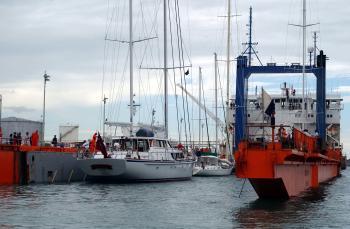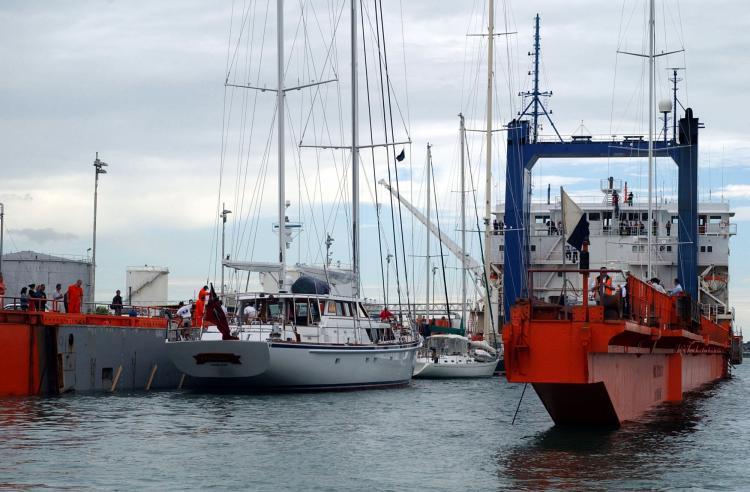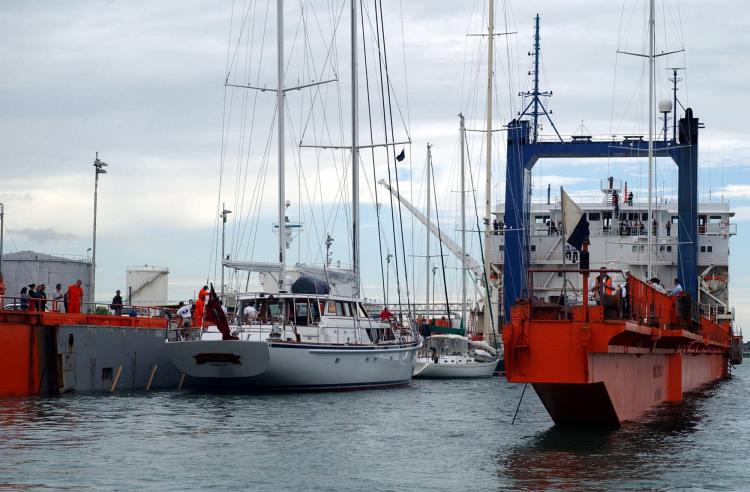Two new rules introduced by the New Zealand Food Safety Authority (FSA) mean all imports that fall into the World Health Organisation (WHO) categories of concern for melamine contamination will be tested before being released onto New Zealand shelves.
Imports that contain dairy from China or Chinese origin have dramatically decreased since the ruling was put in place last week, said FSA’s Director of Approvals Debbie Morris.
“We were expecting 50-70 shipments, but there would have only been about 20 across the week.”
She said a number of supermarkets and some of the large companies, are not interested in having the products of concern on their shelves.
“So they have already taken measures to make certain that we don’t bring the products of concern in at all.”
Green Party Health spokesperson Sue Kedgley said the move by the FSA is good, but concerns remain about the free trade agreement (FTA) with China and other contaminated food.
“We have an underlying concern that the FTA will mean fast-tracking food into New Zealand. It’s good that they are saying that stopping high-risk food at the border, but what this incident shows very clearly is that our border control is woefully inadequate and contaminated food is slipping through the borders and into the food chain. I mean melamine is just the latest example.”
Levels of Melamine in Diet Set
Four Chinese babies have been reported to have died and more than 54,000 ill after consuming melamine-contaminated milk products. New Zealand dairy giant Fonterra owns 43 percent of Sanlu, the company that was first found to have high levels of the chemical melamine in its milk products. Both Fonterra and Sanlu remained silent to the public about the contamination until September 10 when a full public recall began.
New Zealand has set the ’tolerable' level of melamine in an adult diet of 2.5 parts per million (ppm).
FSA Director of Compliance and Investigation Geoff Allen said, “What’s been set in New Zealand is, I suppose you could call it a “threshhold of concern”, if you like. So anything over 2.5ppm we will look at and give our attention to doing some sort of risk assessment.”
Ms Kedgley argued this was a “classic FSA response... They will then say that everything that is below that level is somehow safe. And so they use that legal limit as a way of claiming that food contaminated by these residues is safe—when in fact I don’t think there’s evidence that it is.”
Fonterra’s Chinese Charity
Fonterra’s Andrew Ferrier went to China late last week with a donation of $8.4 million to start the
“Fonterra Rural Maternity and Infant Healthcare Community Programme” under the umbrella of the Soong Ching Ling Foundation.
Fonterra said the funds will be used to provide medical care and advice to pregnant women and mothers of infants in rural communities across China.
New Zealand-based spokesman David Glendining said, “This is about Fonterra offering practical assistance to contribute to the development of rural areas of China. Fonterra is committed to China—we have operated here for around 30 years.”
The donation, to be spread over five years, is the first donation to charity Fonterra has made since doing business in China. The detail of the agreement will be developed over the coming months, Mr Glendining said, but the Foundation has made it clear it will develop a detailed spending programme each year for Fonterra’s approval.
Jia Jia, a former General Secretary of the Shanxi Provincial Association of Scientists and Technology Experts, has doubts the money will reach the people who need it most as large charity organisations, such as the Soon Ching Ling Foundation, are run by the Chinese Communist Party.
“Because such a large amount of money is involved, the regime will need to control it by itself. For an ordinary Chinese people, once they hear the money has been given to a Trust like that, they will immediately know—the money won’t go to the people who need it the most. There are so many examples already, such as the Sichuan earthquake, where the regime received large donations from all over the world, but the earthquake victims almost got nothing left for them.”
Ms Kedgley said the donation by Fonterra was “better than nothing” but could be seen as a public relations gesture.
“It certainly doesn’t make up for the fact that they chose to remain silent for a month when they knew that the milk was contaminated and presumably hundreds, possibly thousands of babies, were consuming the milk products, while they knew about the risk and chose to remain silent.”
Compensation to Victims
Fonterra will not comment on compensation to individuals affected by the Sanlu/Fonterra melamine contamination.
“The question of support for victims is a separate issue that is in the hands of the Chinese Government,” Mr Glendining said in an email.
Sanlu has been closed down by the Chinese Communist authorities and there has been speculation about Sanyan Dairy Company buying Sanlu out. Chinese media have reported that Fonterra are unsure whether they will remain in a new agreement.
Parent Unreachable
One of the parents of a deceased infant has been unreachable since an Epoch Times interview on 23 September. The Epoch Times has not been able to get through to his landline or mobile since the initial interview. He had said he felt responsible for feeding his daughter poisonous milk until she died.
A local doctor who has also read the medical records of the infant told The Epoch Times on 13 Oct. that there is a restriction from the central authorities preventing the parents of the infant to be interviewed by any overseas media.







